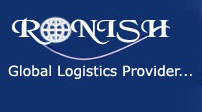
Global aerospace logistics, viewed from the perspective of a freight forwarder and customs broker, is a critical pillar of global connectivity and innovation, relying on precision, speed, and seamless execution.
Behind the scenes of manufacturing aircraft, supplying components, and maintaining operations lies a complex web of logistics that ensures timely delivery, compliance with regulations, and cost efficiency. For freight forwarders and customs brokers, global aerospace logistics is a high-stakes game requiring expertise, meticulous planning, and adaptability.
Understanding Global Aerospace Logistics
This encompasses the transportation and supply chain activities required to deliver aircraft parts, equipment, and materials to their destinations. From raw materials to finished aircraft, logistics providers handle:
Original Equipment Manufacturer (OEM) components: Engines, avionics, landing gear, and fuselage sections.
Maintenance, Repair, and Overhaul (MRO): Spare parts, consumables, and tools for aircraft upkeep.
Aircraft on Ground (AOG) situations: Expedited shipments for aircraft on ground to minimize downtime.
Challenges in Global Aerospace Logistics
Complex Supply Chains: Aerospace involves a vast network of suppliers, manufacturers, and repair stations globally, creating a dynamic supply chain.
Time-Sensitive Deliveries: AOG scenarios demand immediate response, often requiring same-day or next-flight-out (NFO) services.
Regulatory Compliance: Navigating international trade regulations, export controls, and customs documentation is critical.
Fragile and Oversized Cargo: Transporting engines, wings, and other large components demands specialized equipment and handling.
High Value: Aerospace cargo often carries immense monetary value, necessitating robust security and insurance.
Role of Freight Forwarders
Freight forwarders serve as the architects of global aerospace logistics, ensuring cargo reaches its destination efficiently and securely. Their key responsibilities include:
Route Optimization: Identifying the fastest and most cost-effective routes, often combining air, sea, and ground transportation.
Specialized Handling: Coordinating the packaging and transport of sensitive, oversized, and high-value items.
Real-Time Tracking: Providing end-to-end visibility to monitor the shipment’s progress and mitigate risks.
AOG Support: Establishing networks with airlines and charter operators to ensure immediate response for urgent shipments.
Role of Customs Brokers
Customs brokers play a pivotal role in ensuring regulatory compliance and smooth clearance of aerospace goods. Their functions include:
Regulatory Expertise: Navigating complex customs codes, Harmonized System (HS) classifications, and export control laws.
Documentation Management: Preparing accurate invoices, certificates of origin, and other required paperwork.
Duty Optimization: Leveraging free trade agreements and duty drawback programs to minimize costs.
Risk Mitigation: Ensuring adherence to anti-terrorism initiatives like the Customs-Trade Partnership Against Terrorism (C-TPAT).
Best Practices for Global Aerospace Logistics
Develop Strategic Partnerships: Collaborate with airlines, ground handlers, and port authorities to streamline operations.
Leverage Technology: Use advanced tracking systems, predictive analytics, and AI-driven tools for better decision-making.
Maintain Agility: Be prepared to adapt to disruptions, such as supply chain bottlenecks or regulatory changes.
Focus on Training: Equip staff with knowledge of aerospace-specific requirements and compliance standards.
Invest in Infrastructure: Utilize climate-controlled warehouses, specialized containers, and secure facilities.
Future Trends in Global Aerospace Logistics
Sustainability Initiatives: Increasing focus on reducing carbon footprints through green logistics and alternative fuels.
Digital Transformation: Adoption of blockchain for secure documentation and IoT for real-time monitoring.
Global Collaboration: Enhanced cooperation between governments, industries, and logistics providers to address regulatory and operational challenges.
Autonomous Transport: Integration of drones and autonomous vehicles for last-mile delivery and expedited transport.
Conclusion
This is a sophisticated and demanding field, where freight forwarders and customs brokers are essential players. Their expertise in managing intricate supply chains, ensuring regulatory compliance, and delivering time-critical shipments keeps the aerospace industry alive. As technology and global dynamics evolve, the role of logistics providers will become even more pivotal in shaping the future of global aerospace logistics.
